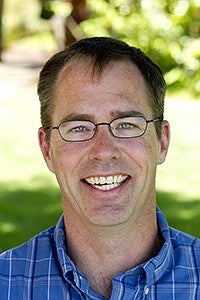
Clark Honors College and Environmental Studies Program
carey@uoregon.edu | 541-346-8077
Courses: Science, Technology, and Environment in the Pre-Columbian Americas (HC 231); Environment and Empire in the Modern World (HC 232); Climate and Culture in the Americas (HC 431)
In my courses you will:
- Practice foundational, transferrable skills.
- Develop a significant project that will challenge you and make you proud.
I was invited into the Teaching Academy because:
- I was recognized as an Outstanding Undergraduate Advisor.
In what ways are you working to make your teaching inclusive?
My courses seek to understand people's relationship with the environment and to examine the history of the natural sciences, engineering, and technologies. I focus on a variety of perspectives in these courses, such as Indigenous peoples grappling with climate change, Latin Americans working to prevent floods and other natural disasters, the history of women in STEM fields, and citizen scientists conducting research on Andean glaciers. I ask students to reflect on different groups' interactions with the environment, including how race, class, and gender influence people's environmental interactions, people's access to natural resources and food and land, and people's quality (or lack thereof) of their environments. Additionally, we examine how race, class, gender, politics, economics, and culture influence the evolution of scientific questions, research infrastructure, and priorities for science and technology. By analyzing these diverse perspectives in my courses—from Indigenous knowledge to the politics of climate science—students find an inclusive environment where we value diversity in the course content while simultaneously both recognizing and learning from the great diversity of viewpoints, backgrounds, majors, identities, and interests among the students in my courses.
What do you do in terms of professional engagement with the teaching and learning culture on campus or nationally?
I continually discuss pedagogy and undergraduate teaching with my colleagues. It's one of the exciting things about working in the Honors College. We often read articles about teaching and share syllabi with each other to enhance our teaching. I also frequently overhaul my courses and their structures, based on feedback from colleagues, attending teaching and pedagogy sessions at the UO and national conferences, reading about education, and listening and responding to my students. I recently published an article on teaching (with UO colleagues Kathy Lynn, Kevin Hatfield, and Jennifer O'Neal) about climate change and indigenous peoples, based on courses we taught and a student conference we organized thanks to a UO Williams Council Instructional Grant.
In what ways was your teaching in this course research-led—informed by research on how students learn and inflected by UO's research mission?
In every upper-division course I teach, the class culminates with students presenting their major research projects at a mini-conference held in the EMU or Many Nations Longhouse, which I co-organize with my colleague Kathy Lynn (ENVS) on Climate Change and Indigenous Peoples. Essentially, every student not only has to do a major research project, but they gain excellent professional development and real-world experience presenting their work in oral presentations or posters in these student conferences. I promote student research beyond the classroom as well, mentoring undergraduates on their research projects for the VPRI fellowships, Humanities Undergraduate Research Fellowships, and more than 50 honors theses. In my Glacier Lab for the Study of Ice and Society, I also teach undergraduates about research, working with them and graduate students to collaboratively produce scholarship that we research, co-author, and publish together.
What is your proudest professional achievement?
My proudest professional moment was winning the Outstanding Advisor Award. Advising and mentoring students outside of the classroom is essential but often overlooked. This recognition, and nominations from the students themselves, was truly touching.
